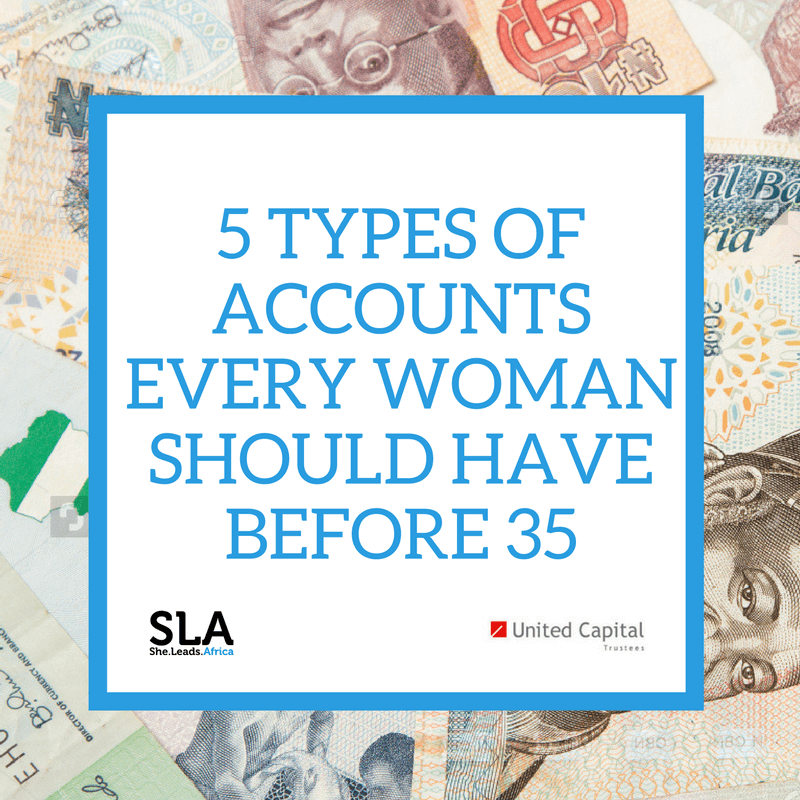Budgeting Tips for the 2021 Bride (Nice-to-Have and Must-Have)
Are you overburdened with all the bills with no one to help you out? Or, are you worried about a long to-do list with numerous ‘advisers’ but no help in sight? This is one time to pause and breathe! Yes, Breathe in…Breathe out… Now that you’ve taken a breath, here’s what to do to get control of your wedding expenses three months before your wedding: 1. Make two lists; a Must-Have List and a Nice-to-Have List. Grab your fiancé to do this with you. Your Must-Have list contains things you know you need to make the wedding the most successful to you.Your Nice-to-have list is for anything else that will be good to have but does not determine your wedding’s success or your happiness. Let’s not deceive ourselves, not everything is a must-have so be true to yourselves as a couple and make that clear from the beginning. 2. Review your Must-Have list and put a timeframe to each item with the corresponding cost. Thankfully, I have created a wonderful Wedding Budget Template to help. 3. Make notes of when the next stream of income will come and plan for it. If you earn monthly, plan ahead on how much of it goes into your wedding. 4. According to priority, review your Nice-to-Have list and add the maximum you can spend on each item. 5. When money comes in, check off something on your Must-Have List. Repeat until everything is checked off. 6. Use extra income to start checking things off your Nice-to-Have list, in order of priority. 7. When help is offered, as long as you have items on your Must-Have list, channel all help to this list first before anything else. 8. Repeat as often as required. In my line of business, I’ve realised that the smartest brides are those who always stay on top of their finances. Remember, the whole essence of this is for you to take one day at a time. There is no need getting so frustrated about what isn’t available or living beyond you. You’re on your own budget! #NoComparison. Always remember, you’re not alone and I’m always here to help.
3 Reasons why you are an impulsive spender and what to do about it: Lydia Chinery – Hesse
This September, we’re out here on these streets trynna secure the bag. If you’re an impulsive spender, this one is for you. As a financial advisor working with Holborn Assets, Lydia Chinery-Hesse has helped clients put measures in place to control their spending while increasing their savings and growing their wealth. She has been working with various nationalities to help them plan their financial future by giving them transparent, objective and honest advice. Lydia helps them visualize their personal (and business) goals and structure a plan towards achieving them. Earlier this year, she created a Facebook group called Love Yourself Financially, a community of global women who are dedicated to being the boss of their finances. Their goal is to be financially secure and free – which has a different meaning to each member. The Scenario You’ve just finished a successful meeting and decide to take a short walk through the mall, for some window shopping. Before you know it, you’ve spent money shopping for more clothes you don’t need! It’s 4:15 pm and you’re absolutely famished. While you could wait another hour to get home and eat some leftovers from last night’s home-cooked supper, you decide to order food that would cost the same amount as your groceries for the week. Even if you haven’t found yourself in one of these situations before, you’ve definitely spent money impulsively in one way or another. Why is this? Why are we so impulsive? More importantly… What can we do about it? Here are the three main reasons for being an impulsive spender, and a few ways you can improve your spending habits. 1. You’re using a credit card Studies show that when we pay using our credit card, we’re more likely to spend money. With a credit card, your thinking will be more along the lines of “out of sight, out of mind”, as you don’t see the money ‘leaving’ your wallet. Conversely, when we spend with cash, it hurts a little, and you tend to think twice before spending it. What should you do about it? • Until you get to a point where you have significantly improved your discipline in this area, ditch the credit card. • Ditching the card means spending cash only. • Withdraw your cash allocation for the week, and carry only what you need on a daily basis. 2. Because money should be spent If you’re able to spend money impulsively, consider yourself fortunate to have the money to do so. That being said, just because you can, doesn’t mean you should. As an impulsive spender, It’s likely you’re not tracking your expenses by writing them down or through an app. If you did, you’d be less likely to spend mindlessly as you’d always be aware of what you’re spending on and how much you’re spending. What should you do about it? • Before you’re about to buy something, you want, pause. Wait a day, a week, a month or longer to determine if you really need it. Chances are you don’t. • Track your expenses, create a budget and live by it. • Get an accountability buddy. When you’re itching to spend, call a friend you trust who will talk to you straight. • Meal prep. Don’t give yourself an excuse to buy a meal. • Try no-spend days a few times per month. In addition to all of these, it’s worth considering…what else could you be doing with that money? This brings me to my last point: 3. You are not thinking long-term Living for today will most likely mean scrambling or struggling in the future. Perhaps it would be wiser to live according to this African Proverb, “For tomorrow belongs to the people who prepare for it today”. What should you do about it? • Set your savings goal and reward yourself for achieving them (without spending money – be creative!) • Save towards future plans. Put some money aside monthly towards that goal, whether it’s a vacation, car purchase, etc. • Be intentional about your long term goals. This begins by figuring out how much you’ll need to either live comfortably in retirement or to reach financial security (where passive income pays for your expenses). Once you have that figured out, work backward from there to determine how much you should be saving (and investing) in order to reach your target. It takes some self-reflection and being honest to admit that there are areas in which we need to be more disciplined in order for the impulsiveness to end. How are you improving your spending habits this month? Click here to share your story with us.
The elephant in the room: Year-end bonus

[bctt tweet=”You need to have a financial safety net for when companies can’t pay bonus cheques” username=”SheLeadsAfrica”] Cash Roulette Many of us dream of the plans we will carry out with our year end bonus. We have already lined up a string of events which we are going to splurge on, and have soon- to-be-bought outfits picked out mentally. In addition to that we have, the vacation plans, the children’s school apparel and school stationary for the next year. We basically plan out an entire budget (read: splurge) from our upcoming bonus. The elusive 13th cheque It may happen that one is so accustomed to receiving their bonus cheque every year-end that it ends up being a customary thing; where no consultation is had and there is an expectation that this will definitely come to pass. However, most companies give 13th cheques based on the performance of the company in a particular financial year. Other companies offer a bonus on the premise of whether an individual has performed their duties exceptionally or not. As such, it is always important to never just assume that you will receive a bonus. It is important to inquire with human resources, the company accounts division or your immediate supervisor. This will assist in managing expectations from friends, family and yourself about what you can or cannot spend on. [bctt tweet=”Most companies give a 13th cheque based on the performance of the company in the financial year” via=”no”] Money makes the world go round… Or does it? There are a myriad of things that money can help us achieve. But, is it the be all and end all of our lives? Oftentimes companies are not able to pay out bonus cheques in a particular year. In this case, it is advisable to have a financial safety net which will assist with the year end and early year costs which come after festive shenanigans. In order to ensure that you are not caught between a rock and a hard place; the first step to building a healthy financial lifestyle would be to save a portion of your monthly income. A little bit every week or month (depending on your remuneration structure) will definitely will go a long way. The myth about ‘goals’ In the 21st century everything either qualifies as or is a goal. An aesthetic, something to live up to. Everyone is in a perpetual and often self-inflicted rat race. We want to be better, own more, drive the best and live in an affluent neighborhood. Even if all of this at an often high cost to the self. Alleviate this pressure by being certain of your finances before making commitments. No is a complete sentence We need to learn the art of saying no to situations which do not grow us or expand our territory. The aim is to lead a life that will not be drastically altered whether you receive your bonus or not. It is possible for one to lead the ideal life without having to break the bank to get there. It requires self-discipline and a huge dose of honesty. [bctt tweet=”You should lead a life that will not be drastically altered whether you receive your bonus or not” via=”no”] Bonus or no bonus? The aim at all times should be to ultimately lead a life of financial freedom. If this means having a side business/job on the side, then so be it. Truth is that for most of us, one source of income is not enough. Some are fortunate to have partners who balance things out in the home because of a dual income. However, it is possible to live your best life and stay out of debt at the same time. Financial freedom should be the new cool, the ultimate aesthetic. Do you have any financial tips on budgeting for the festive season? If you’d like to share your story with She Leads Africa, let us know more about you and your story here.
Juggling post-grad studies, family, a briefcase and the world

[bctt tweet=”You need a tribe of humans who will be there when you need some downtime and rebooting” username=”SheLeadsAfrica”] What exactly does this mean for us when juggling work, studies, and the world? It is a universal assumption and truth that women are the backbone of every family. We are inherently prepared for a purpose. Prepared on purpose. What does this entail and do we have any choice in what we allow to take up space in our lives? How can we better channel our energies into affirming our loved ones, building empires and pursuing our innermost desires and dreams? I am a Womxn. What is your superpower? Firstly, a solid support system is necessary. You need a tribe of humans who will be there to listen, extend a helping hand and generally hold you down when you need some down time and rebooting. It is imperative that we know where to go or when to refuel so that we can do the things we are equipped to do. Contrary to popular belief; this is not at all selfish, this is a reminder to oneself that you are a soft thing and that you should breathe. Inasmuch as life is often a juggling act, one needs to attend to the body, mind, and soul. With a consistent circle of support, it is easy for one to focus and achieve the objectives you have set out for yourself. A great way to stay on the ball is to write up a set of goals and hold yourself accountable to them. A human being actually… How does one strike the work-life-balance? Is this even an attainable feat? This would undoubtedly be a pertinent question for working mothers as one would want to be there for the kids’ milestones whilst breaking new ground on the work front. There have been ongoing studies regarding how one can achieve all this and then some. Ultimately, you should live a life that doesn’t require that you need a vacation from your day to day existence. Sometimes all it requires is doing the things that really get you going, like reading a book, going cycling, having tea with your mother or just having a night out with the girls and/or date night with your partner. Down time is really necessary. [bctt tweet=”You should live a life that doesn’t require that you need a vacation from your day to day existence” via=”no”] Sometimes the lemonade may taste like medicine It is not the end of the world, some experiences are lessons that need to be learned along the way. At the end of it all we need to make decisions about the kind of partners, colleagues and parents we want to be and stop self-sabotaging ourselves. Facebook COO and author of Lean In: Women, Work and the Will to Lead, Sheryl Sandberg shares, “If more women lean in, we can change the power structure of our world and expand opportunities.” She further states, “Shared experience forms the basis of empathy and, in turn, can spark the institutional changes we need. More female leadership will lead to fairer treatment for all women.” Whenever in doubt, or when we question if we can lean in; we ought to remind ourselves that we are the magic and the medicine; and most importantly, we were born for such a time as this. [bctt tweet=”We can be selfless whilst putting ourselves first, it is possible” username=”SheLeadsAfrica”] The world was never ready for your juggling prowess We can be selfless whilst putting ourselves first, it is possible. We can be there for our humans – juggling our itinerary, to-do lists and still have an endless reservoir of love and sustenance for ourselves.We have the power to be whomever we want to be and with the assistance of a steady routine, consistency and positive affirmation, anything is within our reach. Thus, one cannot stress enough the importance of engaging with activities which reaffirm your calling or destiny. It’s also important amidst the juggling to remember that self-care also means giving yourself permission to go through the ups and downs of life and get within your feels. Inasmuch as it takes more than nights away or hours lost in a book; but you can certainly be assured that any dose of self-care can and will go a long way for the spirit, body, and mind. Go out there and SLAy!
Financial affairs in freelancing

[bctt tweet=”Like any business, freelancing has its peak seasons and its low seasons. Know them” username=”SheLeadsAfrica”] So, you delved into freelancing. You jumped head first (or first dipped your toes, whichever works for you) into being your own boss and now nothing can stop you from working in your pyjamas. First of all, big hearty congratulations. Not many make it past opening a freelancing account somewhere, let alone enlist clients. And now that we have gotten the pleasantries out of the way, let us get into the nitty gritty. The big girl stuff. Mogul business. It is essential that you realise that like any business out there, freelancing has its peak seasons and its really, and I mean, really low seasons. This being said, it is essential that finances line up throughout these seasons. Let’s get to it. Know your market This is the basis of any business, and it applies even in online businesses. Knowing when the seasons’ peak and when they fall is essential in managing your money. In academic writing, for instance, seasons pick at around March-April, August-September and in December, which is the end-of-semester months. If one is freelancing designs for say, at a corporate company, it is essential that you understand their fiscal year and how they pay or contract employees then. Know your worth Some people may have you believe that since you are freelancing your services, they have to pay less that is required. Knowing the pricing on your product and service is crucial in you making profits, in the long run. So, do not undervalue or overvalue yourself. [bctt tweet=”Know your worth as a freelancer, do not undervalue or overvalue yourself” username=”SheLeadsAfrica”] Factor in your expenditure Granted, there is not much revenue that you put in when freelancing unless you are renting office space. Your internet plan, however, will straight out flatten your morale if you are not careful. Choose an internet plan that is affordable for you, and that you know you can easily manage even when literally no clients are coming through because it will happen. Ride the wave High seasons in freelancing are really high, and what goes up will hit rock bottom with the same momentum. When that tide comes in, ride it like your life depends on it. Work through the day and night, stock up on coffee or energy drinks, never see outdoors, whatever it takes, stock up on that money (just remember to factor in self-care, of course). Stock up on some emergency cash Yeah, things happen. Your regular client finishes school, your contract ends, life goes on. Set aside some money for an emergency just in case your bank account is depleted. This actually goes for all businesses. It is standard. Follow the 50/30/20 rule on cash Personal financing is basically what will take you through freelancing. Know what you are spending your money on, track your receipts, cut down on the ‘for show’ products, and follow the 50/30/20 rule. 50% of your income is used on basic expenditure (like rent, food), 30% settle your debts and maybe a few luxury products, and invest with the 20% that remains. Or, follow this SLA guide prepared to cushion you from spending everything. Network, network, network Even in the low seasons, remind your clients that you are available, and ask them to refer you to other clients. Networking and good service are crucial in this business. If you are working in your pyjamas and at the convenience of your home all day, something has to give. [bctt tweet=”Even in the low seasons, remind your clients that you are available” username=”SheLeadsAfrica”] That said, like in any business, consistency and good product/service will bring you the money. Personal financing will ensure that the money sticks with you. Happy freelancing #MotherlandMoguls!!
5 Types Of Accounts Every Woman Should Have Before 35

Mo money, mo problems right? Maybe for Diddy, but definitely not for us. Definitely not in this economy and with the bills we need to pay and with the power moves we’re trying to make. More money equals more financial security for ourselves, our businesses and our families but how do we go about achieving that in the long run? The first thing you have to realize is that you can’t wait until you’re older to get started. In fact there are things you can do before you turn 35 which will go a long way in ensuring your financial independence for the rest of your life. We spoke to financial advisors from United Capital about what young women need to do to be better prepared for their future and they shared with us 5 important money accounts that every young woman should have before she turns 35 years old. Now 35 isn’t a hard and fast deadline but we can all probably agree that we better start to have our stuff together by the time we turn 35. Topics this guide will cover: – What are the 5 accounts you need to have before you turn 35 – Why each of these financial accounts matters for your future – How you can get free financial advice to help you reach your money goals So how do you download this free guide? Easy – just fill out the form below to join our community and get access to this guide and AWESOME weekly content. [ninja_form id=29] If you already know you’re ready to speak with a financial advisor who can help you set up long term savings and investments options, then you should connect directly with the United Capital team by emailing them at privatetrust@unitedcapitalplcgroup.com.
The one basic lesson to teach your kids about financial responsibility

Don’t you just wish you had been taught about financial responsibility when you were much younger? In our rapidly changing world, it has never become more imperative to teach our children the need for handling money well. In fact, it’s such an important skill that it will guide their decisions well into adulthood. If you’re able to do a good job with the lessons now, your children will look back and be grateful to you as a parent. And in getting this done, there’s no better time to start than now —your child is never too young to begin. It’s important for kids to get savvy about spending wisely, saving and the value of giving to others. Delayed gratification —an important lesson When I mention that there’s one basic lesson to teach your kids about financial responsibility, I mean that at the heart of every financial decision you’re getting your child ready to handle in their future is one basic fundamental lesson, which is ‘delayed gratification’. Delayed gratification is learnt from deciding to do a chore now and watching TV later. It is about eating up two candy bars now or keeping one till tomorrow. You see, for the most part, the concept of saving money and spending wisely is more about learning to wait for something versus getting it now. Financial discipline is first of all the ability to spend less than you earn (which requires proper budgeting and sticking to it) and secondly, being able to put that excess in the budget away over a period of time (savings). How do you help your child to be financially disciplined with the concept of delayed gratification? Start early Children form their habits based on what we expose them to. They are influenced by their environment and learn from the things they see on a regular basis. If you let your children understand that it may not always be the best thing to get something now, they grow with that lesson and it becomes easier as time goes on. For instance, I hear a lot of parents say they don’t like to go to the supermarket with their kids because they are afraid of the demands to buy something that’s not on the budget. If you train your kids that we do not always get what we want when we want them, they learn to respect those boundaries you’ve put in place. Teach by example Children learn by example. They’ll do whatever they see you do. There’s a need to model this concept for the children in everyday living. Use regular situations of life to let your children understand the need to wait for things. They can either decide to get something now or get it later. Showing them the benefits of waiting can aid them in their decision to wait for something they love. Let them see that waiting is better. The way you conduct yourself on decisions that have to do with spending and savings will impact on your kids. Don’t shy away from discussing money matters with them. Encourage savings Let your kids learn to save every part of any amount that comes through their hands, no matter how small. Teaching your kids to save is an integral part of helping them to understand the concept of delayed gratification. They can save towards the future or simply towards a desired gift or toy. Teaching your kids to understand delayed gratification is a gradual process and they will learn as long as you remain consistent in your teaching. Self-control is a gradual process for your kids and they will get there. Just be firm and compassionate about it. They’ll thank you later.
